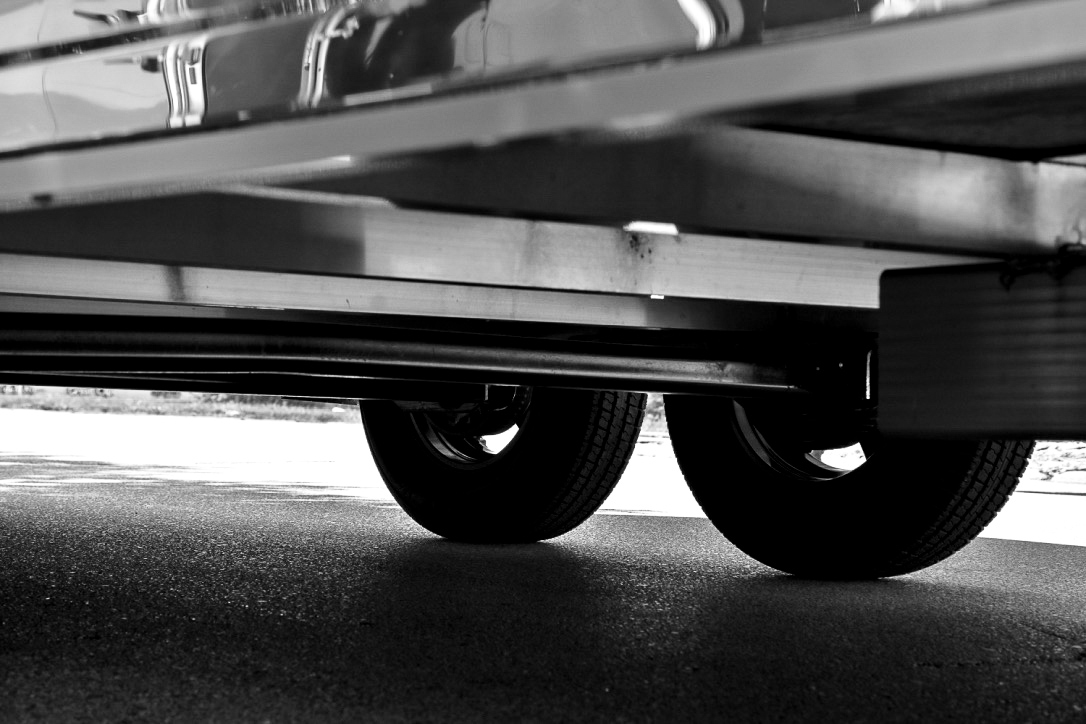This guide answers the popular question: What are the pros and cons of mechanical trailer brakes?
Mechanical trailer brakes are a relatively simple system. When a trailer is moving forward it moves with the speed of the vehicle, but to stop the trailer from going faster than the tow vehicle because of its weight, the overrun brake exists. Hence giving mechanical brakes the nickname: overrun brakes.
This article will guide you through the pros and cons of mechanical overrun brakes to help you decide which brake system is the best option for your trailer. Click the links to learn more about other trailer brake options, electric and hydraulic.
How do mechanical brakes work?
Mechanical overrun brakes are made up of a sliding spring mechanism that is mounted to the trailer’s drawbar. This spring contracts as soon as the trailer’s speed attempts to overrun the vehicle. When the drawbar contracts, a set of brake cables are pulled, which then activates the brake drums. The higher the pushing force that the trailer causes on the tow vehicle, the higher the braking force. When the trailer resumes the same speed as the tow vehicle, the trailer brakes are disengaged. As soon as the tension on the spring mechanism is released, the brake cables are deactivated.
Pros of Mechanical Brake Systems
Simple & reliable – The overrun system is simple and therefore not much can go wrong, whereas your electrical system can often have wiring faults or connector issues which leads to replacing your parts more often.
Breakaway – Certain overrun brake systems utilize handbrake breakaway cables for extra on-road safety
Additional features – With mechanical brakes, you can have an overrun dampener which creates a smoother ride.
Standard Brake Option – Mechanical brakes come standard on most smaller, lightweight trailers.
Less expensive – Mechanical overrun brakes are a more cost-effective option compared to hydraulic brakes.
Cons of Overrun Brake Systems
Not Always Instantaneous – When towing a trailer with mechanical brakes, it’s especially important to keep the trailer straight at all times. Any sort of angle between the tow vehicle and trailer will cause the trailer to be traveling slower than the vehicle. This just means it may take a few seconds longer for the mechanical brakes to kick in and activate when the tow vehicle slams on the brakes.
Lightweight Trailers Only – Mechanical brakes are only going to be useful if you are driving a smaller, lightweight trailer, or a trailer that is loaded with lightweight materials.
Wear and Tear – Heat dissipation on mechanical brakes is not uniform, which can cause the mechanical brakes to break down more quickly over time.
Are Mechanical Brakes the right option for you?
With so many brake options for your trailer, it’s no wonder you’ve begun researching which option is best for you. We encourage you to get expert advice before pulling the trigger on a braking system for your trailer.
Whether you’re planning to tow lightweight loads, heavy equipment, going short distances, or taking trips to the lake, you have options. Contact BlueSwift Axles today and we’ll give you our expert advice on which brake kit option to pursue.
